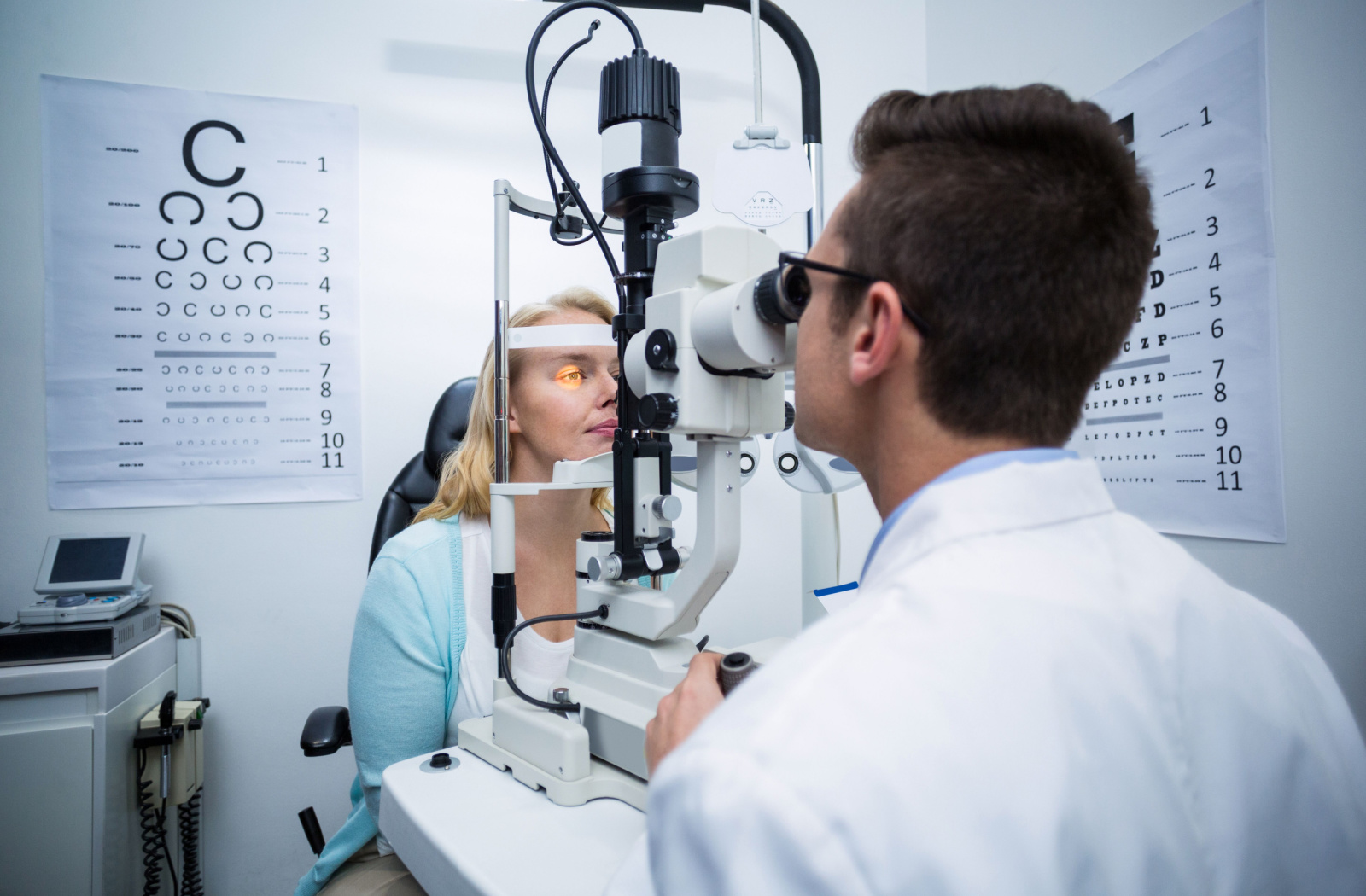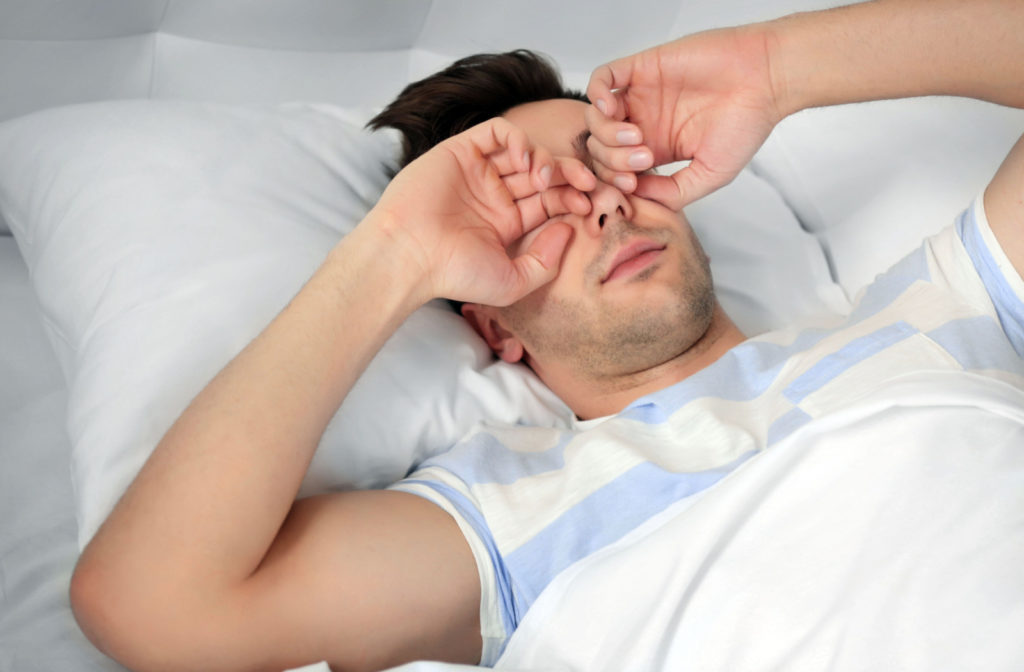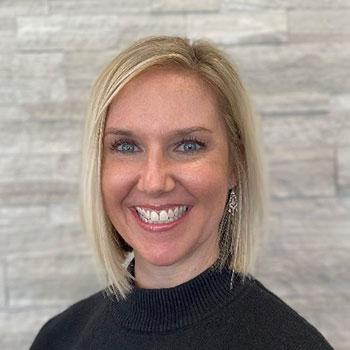Dry eye in the morning is a common, yet often overlooked, issue. It can be particularly common for individuals who sleep with fans or heat running, spend their days looking at screens, or take certain medications that increase the likelihood of dry eye.
If you’re waking up with dry eyes often, there may be an issue with your tear film—the 3 balanced layers of oil, water, and mucus that make up your tears. Many things can go wrong with your tears to throw them off balance. Your eye doctor can help determine the cause of your dry eyes and recommend treatments to help rebalance your tear film so it can keep your eyes hydrated.
Causes of Dry Eyes in the Morning
Various factors influence the body’s natural tear production during sleep, which can lead to dry eyes in the morning. This reduction in moisture can cause an uncomfortable, gritty or burning feeling that lingers throughout your day.
Nocturnal Lagophthalmos
Nocturnal lagophthalmos, or the inability to fully close the eyelids during sleep, can lead to dry eyes in the morning. When the eyes are exposed during the night, it can result in increased tear evaporation, leading to discomfort and dryness upon waking up. This condition can also cause irritation and blurred vision if left unaddressed.
Meibomian Gland Dysfunction
Meibomian gland dysfunction (MGD) occurs when the tiny glands in your eyelids don’t produce enough oil to keep your eyes lubricated. This can lead to dry eyes, especially in the morning when the oil has had time to thicken. MGD is the most common cause of evaporative dry eye, affecting your tear film’s oil layer.
Environmental Factors
The air in your bedroom can affect your eyes more than you may realize. Air conditioning and heating, together with seasonal changes, can reduce your room’s humidity, making the air more prone to drawing moisture from your skin and eyes. This is part of the reason why dry eyes are more common during the winter months.
Allergies or Irritants
Allergens in the bedroom, such as dust mites and common eyelid irritants like dust or pet dander, can exacerbate dry eye symptoms. Allergic reactions can lead to itchiness, and rubbing your eyes can disrupt the morning tear distribution even more, potentially leading to dry eyes.
Eyelid Problems
Conditions such as blepharitis, a chronic inflammation of the eyelids, can affect the quality of your tear film and the ability of your tears to spread across the surface of your eyes. This can result in a tear film that evaporates more quickly, leading to dryness upon waking up.
Evening Screen Time
Spending extended periods staring at a computer, smartphone, or other screens can lead to digital eye strain, dryness, and discomfort. This is due to decreased blinking frequency, essential for keeping the eyes lubricated. To alleviate this, consider taking regular breaks, using artificial tears, and adjusting the lighting and positioning of your screen.
Preventive Measures & Solutions for Dry Eyes
Addressing dry eyes in the morning can require a combination of preventive strategies and treatments. To help combat dry eye discomfort at home, try the following:
Use a Humidifier in Your Bedroom
Increasing the humidity levels in your bedroom with a humidifier can counteract the drying effects of indoor air. This is especially beneficial during the winter months when your heater is running.
Avoid Rubbing Your Eyes
While it might seem like a natural response, rubbing your eyes can worsen dry eye symptoms. This action can disrupt the lipid layer of the tear film, which keeps the tears from evaporating too quickly. Instead, focus on gently blinking a few times to redistribute your tears.
Use Lubricating Eye Drops Before Bed
Artificial tears or lubricating eye drops can provide overnight moisture, keeping your eyes hydrated as you sleep. It’s important to select drops specifically formulated for use at night. Your optometrist can provide advice on the right eye drops to use.
Clean Your Eyelids at Night
Maintaining good eyelid hygiene can help remove potential irritants and allergens. Using a clean, damp cloth or over-the-counter eyelid scrub can keep your eyelids clean and promote healthier tear production.
Book an Eye Exam
If your dry eye symptoms don’t let up, it’s time to book an eye exam. An eye doctor can diagnose underlying issues, such as blepharitis or MGD, and recommend targeted treatments to alleviate discomfort.
Professional Treatments for Dry Eye
Depending on the severity of your symptoms and their underlying cause, multiple treatment options are available, ranging from lifestyle adjustments to medical interventions. Your eye doctor may recommend the following:
- Prescription medications: These can include medications to control eyelid inflammation and cornea inflammation, tear-stimulating medicines that come in pill, gel, or eyedrop form, or eye inserts placed under your eyelid that dissolve slowly to lubricate your eyes.
- Punctal plugs: These tiny devices are inserted into the ducts that drain tears from your eyes, which helps to keep more moisture on the eye surface.
- Specialty contact lenses: Certain contact lenses can help keep the eyes hydrated and trap moisture to prevent dryness. Your eye doctor can recommend the best type for your needs.
- Warm compresses and eye masks: These can help open oil glands in the eyelids, encouraging the flow of oils to help stabilize the tear film.
- Intense pulsed light (IPL) therapy: This innovative procedure uses light energy to treat the skin under the eyes, relieving inflammation and clearing oil blockages in the eyelid glands. This promotes the free flow of oil for longer-lasting eye moisture.
- TearCare: A professional treatment method designed to help MGD and chronic dry eye symptoms. This procedure applies gentle heat and pressure to the eyelids to open and clear the blocked oil glands, supporting the natural flow of oils essential for a stable tear film.

Wake Up with Refreshed Eyes
Addressing dry eyes is crucial for your eye health and overall quality of life. While home remedies and preventive measures are beneficial, consulting with a professional is the best approach for persistent or severe dry eye symptoms.
With proper care, you can start your day with eyes that feel refreshed, comfortable, and ready for the day ahead. Contact us at The Eye Gallery to learn more about dry eye therapy and how we can help you wake up with refreshed eyes.




